Baba Jan: Imprisoned, an activist speaks
Baba Jan in his first private interview maintains that he committed no crime.
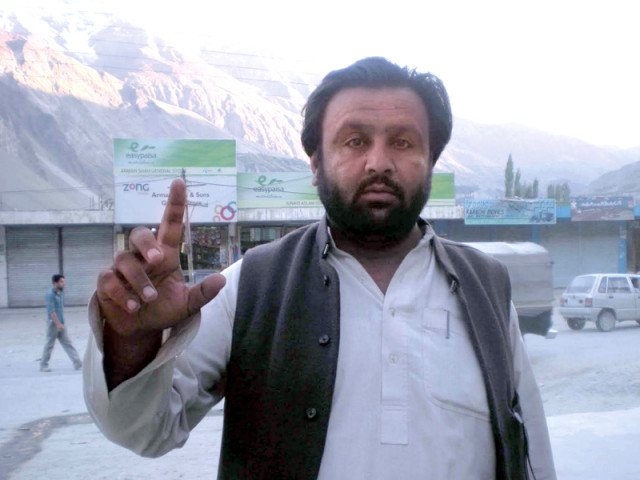
Baba Jan: Imprisoned, an activist speaks
Named the Attabad Lake, it displaced over 1,000 people who lost their homes, livelihoods and access to the world. When these displacements did not get the government's attention, and Pakistani authorities declined an offer of help from China, the hungry and homeless took to the streets to demand reimbursement.
Eventually, the government compensated the aggrieved families. But 25 of them were reportedly overlooked and denied funds. Baba Jan, who is known in the G-B community for his determination to protect human rights, encouraged the local people to demand action, and was eventually thrown in jail accused of being a "terrorist."
Baba Jan and two other youth activists, Amir Khan (37), and Iftekhar Hussain (34), have been in jail since August 2011. Their arrests a year ago this month were made based on Anti Terrorism Charges brought against them for leading a mass movement across the country against the inaction of the government during the Attabad incident.
During his first private interview - conducted in the visitors' room in Sub Jail Jutial - Baba Jan maintained that he committed no crime when he protested against what he sees as the Government's persistent human rights abuses. "It is not ignorance anymore, it is a deliberate violation of the rights of common man. And this cruelty needs to be shattered."
Appearing noticeably malnourished, he limped back and forth in the visitor's room, enumerating the challenges that many in Gilgit have been facing for the two and a half years that have passed since the Attabad incident. The signs of torture still resident on his arms, his shaved skull, and swollen feet compelled me to interrupt him and ask about the details of his multiple jail experiences.
Nervously, he showed some of his scars. Advocate Ehsan Ali, Baba Jan's lawyer, later confirmed details of recurrent torture, including both physical and mental abuse.
"His ear lobes pulled with pliers, his body hanged upside down and beaten with wooden stick and chairs. His shoulder-length hair shaved off. And an abusive language by jailers, who'd say horrible things to mentally torture him" said Ehsan Ali.
Baba Jan said he had never imagined torture would bring him so close to death, so many times, and yet not close enough stifle his voice. He continues to raise his voice against the Government of Pakistan's failure to provide for the victims of the Attabad Lake disaster, as well as other disadvantaged segments of the population. And there have been protests on the streets of Karachi, Lahore, Islamabad, Rawalpindi and Peshawar to ‘Free Baba Jan.' There has even been international support for this 35-year-old senior leader of Pakistan Youth Front G-B, including a petition signed by human rights activists such as Noam Chomsky, Tariq Ali, Sadia Toor and many more.
The text of my conversation with Baba Jan follows:
What had happened the day you were arrested?
When a 22-year-old student, Afzal Baig was killed in front of his father, Mr. Baig [Afzal's father] protested and wailed at his innocent son's killing. The police pierced his body with a dozen bullets and killed him on the spot.
Both father and son were victims of the Attabad Lake disaster, and were peacefully protesting at a demonstration with the other victims of the lake, asking the Government to compensate them.
As we protested at KKH, and had been rallying across the country to raise awareness about the Attabad victims, the police arrested us on strict terrorism charges, including attempt of terrorism. There was a ‘criminal case' registered against me under Anti Terrorism Act (ATA).
And this is how the government treats its citizen. Most prisoners here with me in jail have done no crime except to speak. People don't speak out many times just because of fear. Why shouldn't we stand with the people who have been maltreated, beaten up and killed. This is a massacre.
The police say you have been training prisoners to carry out "terrorist activity"?
Well all I have been doing is gathering the Sunni and Shia sects in the jail in a single group and making them sit and breathe with each other. I have tried to make them understand each others' problems instead of fighting based on sect. And I am glad that there are great developments in the prison now. They now indulge in long conversations with each other, which was almost an impossible thing to imagine when I had come here exactly one year ago. Some of them also share their meals with each other, which they otherwise thought of as a sin.
The police and the government have long taken advantage of the sensitive Shia-Sunni relationship in Gilgit-Baltistan. Agencies deliberately create fights among the people so that G-B stays as instable as possible.
Now that they see them living in harmony with each other in the jail, it annoys them. Anything that has to do with protest and raising one's voice becomes terrorist activity for the government. They are not ashamed of maltreating citizens in the first place, they even charge them with fake cases of terrorism and then torture them for the crime of speaking, calling them terrorists.
They also say you have created a support system within the jail, which is why the JIT [Joint Investigation Team] had to relocate you several times. How many supporters do you have?
Well, firstly the JIT "abducted" my fellow inmate Iftikhar Hussain and myself on 20th July for the same reason too. It happened many times. They move us to torture us further, whenever our fellow prisoners start supporting me. Let me assure you, they never had to relocate us because we were creating any nuisance in the prison, but because they couldn't deal with listening to our demands.
It's funny what they say each time they have to pick us up to torture us. It must really frustrate them to have us alive even after so much torture that my fellows in jail have gone through with me. I do have supporters, yes. They support my idea of speaking out against human rights abuse.
Every prisoner supports me.
Have you not been organizing prison rebellions?
They don't give meals for several days. Most prisoners have their families deliver food to cook, but there are no stoves. After a week of protests by the prisoners, they provided a single stove. Then for two days there was no gas. The prisoners speak out of hunger.
Various prisoners need immediate medical attention. In spite of court orders the administration does not allow them to be treated. Nor do they provide them medicine. One of my friends here is a cancer patient and has a court order for chemotherapy, but he is denied that right too. He is literally on the ground. They don't provide beds to prisoners who are ill, not even to serious patients. Do you think witnessing all this won't outrage fellow prisoners?
Some officials made visits to Gilgit, including the Prime Minister Yusuf Raza Gilani. Were these visits fruitful?
The Prime Minister's visit was interesting. It was heavily highlighted in the media and that was the only successful part of the visit; the media coverage that is. There was nothing actionable done by the government. Essentially the visit was futile since there was no public gain out of it.
But didn't he give some significant donations, including the distribution of Benazir Langar (Rashan) [Langar or Rashan are relief goods. The current PPP-led Government has a name for their Rashan, called Benazir Langar, named after the late Benazir Bhutto]?
During the protests, the Red Cross and Agha Khan Foundation had set up camps and had made provisions for rashans (food and supplies) to help the victims of the Attabad Lake disaster. PM Gilani took those provisions to inaugurate the Benazir Langar, and for the photo-ops. Locals were watching and observing all this, and since protests were going on, the environment allowed them the confidence to retaliate [they felt that the redistribution of rashan was unfair, and that they should be given food and supplies separately from the Government. They "retaliated" by fighting the police with sticks and attacked police vans and other state vehicles.] The protesters included both men and women, who walked down the valley to KKH (Kara Koram Highway). They were eventually beaten up. Since journalists were equally threatened, no media outlets were able to report on this. Benazir Langar was a mere redistribution of rashans.
Has reporting been fair on the series of these incidents [i.e. the Attabad incident, the government's non-response, the torturing of detained protesters in prison] so far?
That is also very interesting. There has always been lack of coverage about G-B issues, in the mainstream media. We do have a local paper that covers issues according to its own bias. The sectarian divide in G-B controls the way coverage is given to the issues of the common man.
Our own protests were not covered in the mainstream [Pakistani media], and only local and online papers like Paamir Times would give us proper reporting. That really disconnected G-B from the rest of Pakistan.
What do you want the government to do?
It is very simple. The government should give the people what they deserve. Reimburse the losses they incurred due to the failure of the Government's negligent behavior. Even though some destruction had been predicted and the people were warned months prior to the land slides, the state did not take any precautionary measure.
Shahra-e-Karakoram, the road that conjoins small towns and villages to the main cities has been in-operational. Since all the banks, businesses and hospitals are only in the main cities, local citizens from these towns and villages have to face great difficulty making it through the mountains. Patients who need to get to the hospitals usually don't make it in times of emergency. The government needs to look into this.
What would you do when you get out of jail?
I will continue to work for the cause of the people. I will make sure their problems are heard by the government and help them stand united against violence and neglect.
Kiran Nazish is a journalist and activist based in Pakistan.
This interview originally appeared on Foreign Policy, The AfPak Channel here.

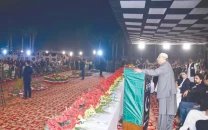

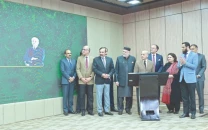
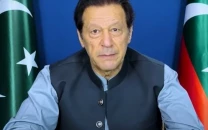
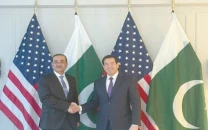













COMMENTS
Comments are moderated and generally will be posted if they are on-topic and not abusive.
For more information, please see our Comments FAQ